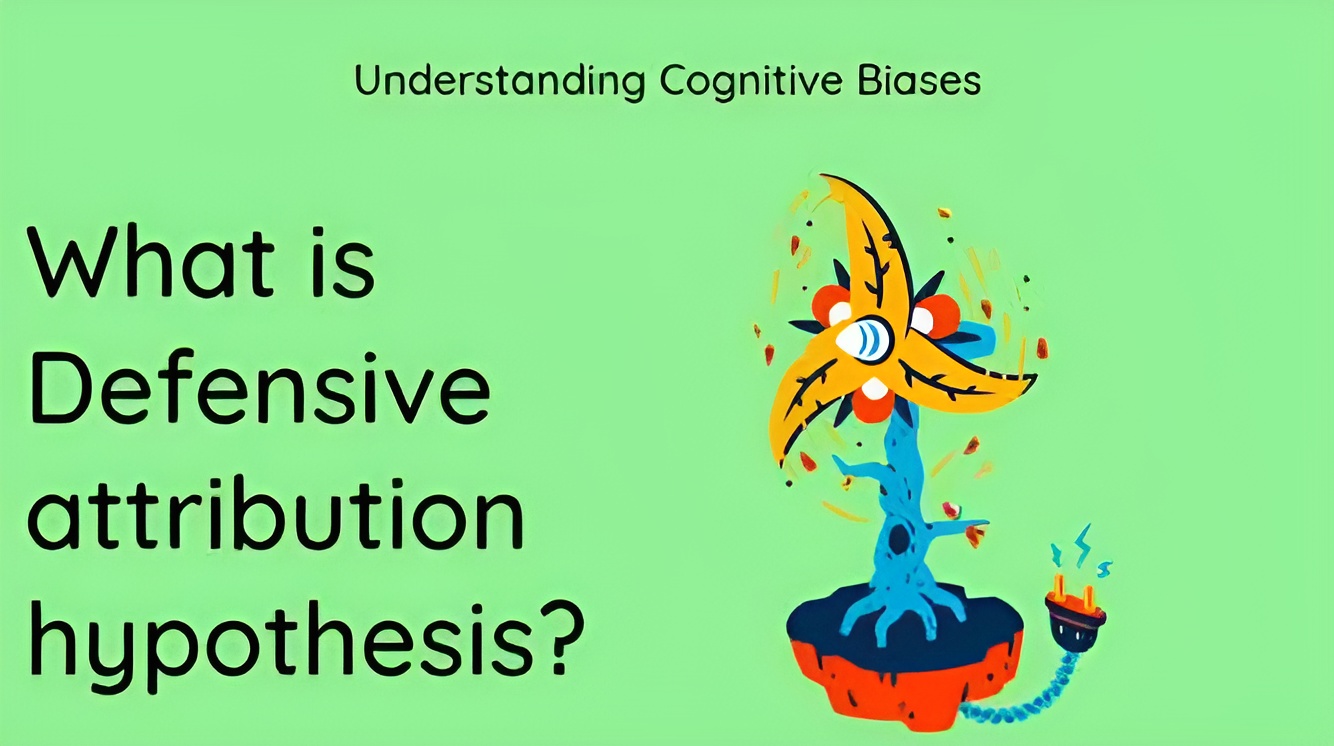Defensive Attribution: Protecting the Self-Esteem
Defensive Attribution, also known as the Self-Serving Bias, is a cognitive bias where individuals attribute their successes to internal factors such as their abilities or efforts, while attributing their failures to external factors, such as bad luck or the actions of others. This bias serves to protect one’s self-esteem and maintain a positive self-image.
Examples of Defensive Attribution:
Academic Performance: A student who excels in an exam may attribute their success to their intelligence and hard work, while blaming a poor grade on factors like a difficult test or a distracting classroom.
Workplace Success: An employee who receives a promotion might credit their diligence and skills for their achievement. Conversely, if they miss out on a promotion, they may attribute it to office politics or favoritism.
Relationships: In a romantic relationship, if things are going well, one partner may believe it’s because they are a great partner. However, if there are issues in the relationship, they may point to external stressors or their partner’s behavior as the cause.
Defensive Attribution in Action:
Consider a scenario where two friends, Alex and Morgan, both apply for the same job. Alex gets hired while Morgan does not. When discussing the outcome, Alex attributes their success to their strong qualifications and excellent interview performance. Morgan, on the other hand, blames their lack of success on the unfair hiring process and the interviewer’s bias. Both individuals engage in Defensive Attribution to protect their self-esteem.
Solutions to Mitigate Defensive Attribution:
Self-Reflection: Encourage individuals to engage in self-reflection and consider the role of both internal and external factors in their successes and failures. This can help reduce the bias’s impact.
Mindfulness: Practicing mindfulness can make people more aware of their thought patterns and biases, including the Defensive Attribution bias. Mindfulness exercises can help individuals become more objective in their self-evaluation.
Feedback and Perspective: Seek feedback from others to gain a more balanced perspective on your actions and outcomes. This can provide a more accurate understanding of the contributing factors to success and failure.
Encourage Accountability: Promote personal accountability and the willingness to acknowledge one’s role in both positive and negative events. Encourage individuals to take responsibility for their actions and outcomes.
In conclusion, Defensive Attribution is a cognitive bias that leads individuals to attribute their successes to internal factors while blaming external factors for their failures. To mitigate the impact of this bias, it’s important to foster self-awareness, practice mindfulness, seek feedback, and encourage personal accountability. By doing so, individuals can make more accurate attributions and maintain a healthy self-esteem.
